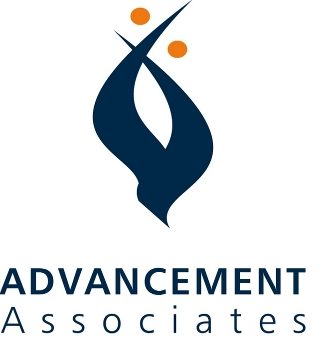“Now I have a question for you,” laughed CEO David Heusinkveld as our interview drew to a close. “Why are you talking to me?”
After a six-year tenure at MDC Goldenrod, a Goshen, IN organization serving persons with disabilities, Heusinkveld is approaching the end of his first year at Pleasantview Home in Kalona, IA. And under his leadership, this continuing care retirement community seems to be navigating to calmer waters after a recent tumultuous chapter in its history.
Shortly before Heusinkveld arrived in Kalona, Pleasantview was dealing with two major challenges. First was an inactive development program. Most fundraising was coming from a benefit sale that pre-dated the home itself, from memorial gifts, and from gifts by about 10 area congregations—the same 10 that had started the organization in 1958.
Missing from the equation were gifts from real live individuals! That income stream, says Heusinkveld, had fallen prey to a development approach that relied largely on letter writing. “There was no relationship. In fact, many people didn’t know who the development officer was or realize the position was eliminated in January of 2010.”
But to make matters worse, public perception of the home had plummeted due to some extremely unpopular administrative decisions and subsequent administrative upheaval. A transitional executive was hired to begin a “rebuilding” process. Upon arriving seven months later, David’s first question was, “How does the community feel about us? Can we even think about starting development again?”
From talking to staff and residents, leaders at Pleasantview got the sense that relationships with the community were very much improved. But they needed to be sure. “The board of directors and I decided we needed someone neutral with whom community members could really be honest, and someone with enough experience to pick up on the parts of those conversations that would give us the information we needed.”
For that, Heusinkveld turned to AAI Associate Becky Drumm, whom he had met during his days in Goshen. In March 2011, Drumm was hired to conduct a development audit.
“We saw the development audit as dovetailing with some other goals. We knew that the development program we’d had before wasn’t working. As an organization, we were asking not only, ‘Are we ready for fundraising,’ but, ‘If we want to do development in a more organized way, what should be the first steps? What approach would the community be receptive to?’”
The audit confirmed that Pleasantview stakeholders believed the home was moving in a positive direction, and gave its leaders reason to believe that income from charitable giving could be dramatically increased.
David knows that, as CEO, he needs to be Pleasantview’s primary development agent, but he and the board have found support in a fortuitous place: his administrative assistant, Julie Gingerich.
“Julie seemed tailor-made for this position. She’s a very warm individual, she’s highly thought of in the community, and she’s a very strong advocate for the home. [Since the former development director left], if someone sent a gift, Julie would dash off a thank-you letter. She was sort of keeping the development work active at a low level without even realizing it, which indicated to us that she had good instincts for this.”
Moving Julie into development has posed personal and professional challenges for her, but David continues to do what he can to make the shift work.
To give Julie more time to devote to development she has been relieved of some tasks and will eventually be relieved of more. Becky Drumm continues to work with Pleasantview, coaching Julie on how to do development in a formal way and building her confidence.
Though a strong and vibrant development program may be a few years down the road, and a capital campaign will likely be considered to renovate aging facilities, Pleasantview’s immediate goals include simply generating annual income from contributions. In that process, Heusinkveld and the board hope to help donors see themselves as “really becoming part of what we do at Pleasantview, not just giving a donation.”
They also want to encourage constituents to think of other ways they can join in Pleasantview’s mission; the home’s already-strong volunteer program is one such possibility.
Why interview you, David? Because you—with the board’s support—have identified the challenges and are taking the steps to meet them. Because you are putting a person in place who has great potential to be an effective development officer. And because you are investing the resources needed to build an advancement program that will help strengthen Pleasantview Home’s mission and program for future years. Keep up the good work.
